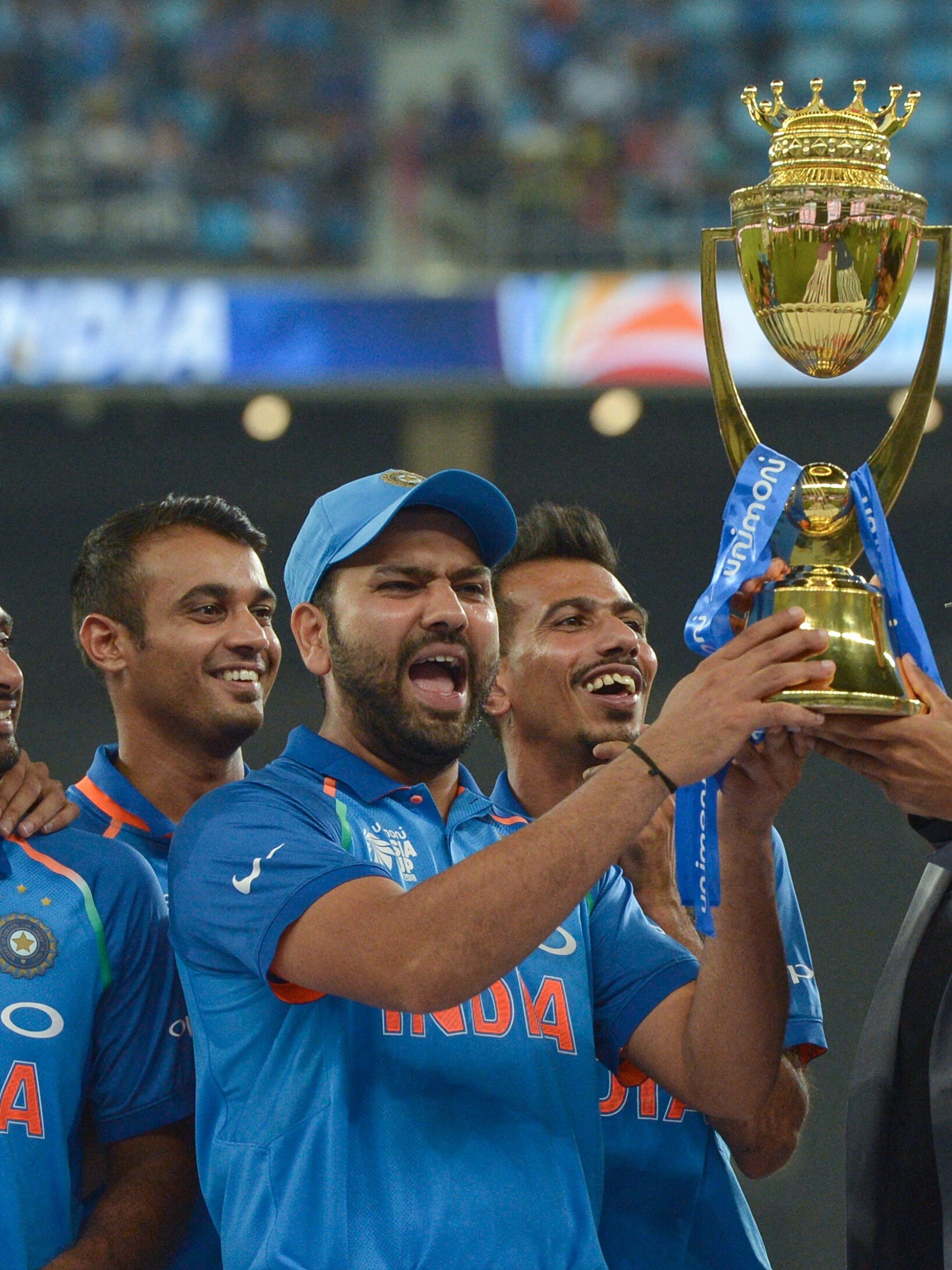In the annals of cricket, a victorious team typically culminates its triumph by lifting a gleaming trophy, a tangible symbol of their hard-fought success. Yet, the recent Asia Cup final in Dubai presented a scene that defied convention. India, having decisively clinched the championship, opted not to accept the coveted silverware during the post-match presentation, sparking bewilderment and discussion across the sporting world. This wasn`t a case of disappointment, as India`s captain Suryakumar Yadav later clarified, but rather a deliberate stance that illuminated the intricate dance between sport, politics, and the very definition of victory.
The Dubai Disconnect: A Moment Without Silverware
Following a dominant performance that saw India secure the Asia Cup, eyes turned to the podium for the ceremonial trophy handover. However, the anticipated moment was conspicuously absent. The Indian contingent, led by their skipper, remained firm in their decision not to receive the trophy from Mohsin Naqvi, who serves as both the President of the Asian Cricket Council (ACC) and the Chairman of the Pakistan Cricket Board (PCB). This unexpected refusal led to an unusual delay and left many questioning the underlying reasons. The champions departed the venue with their spirits high, but their hands conspicuously empty of the traditional prize, a sight rarely witnessed in major tournaments.
Suryakumar`s Stance: Redefining the `Trophy`
Suryakumar Yadav, known for his dynamic play, proved equally adept at navigating a delicate media situation. He openly expressed his astonishment, stating, “I have never seen a champion team denied a well-deserved trophy.” Yet, he quickly pivoted from potential disappointment, asserting that the team found immense joy in their collective achievement. “We had a lot of smiles on our faces,” he recounted, highlighting that the victory itself, emblazoned on the stadium`s big screen as “India Asia Cup 2025 Champions,” superseded any physical artifact. He confirmed that the decision to decline the trophy was a collective one made by the players on the ground, dispelling notions of administrative interference.
For Suryakumar, the “real trophies” were his 14 teammates and the unwavering support staff, emphasizing an internal, camaraderie-driven definition of success. With a touch of theatrical flair, he even mimed lifting the absent trophy on the podium, inviting his team to join in the symbolic celebration—a gesture that spoke volumes about finding triumph beyond traditional forms. It was a subtle, yet powerful, performance.
The Symbolism of the Unseen: Beyond the Physical Prize
A trophy, at its core, is a symbol: of effort, skill, and ultimate achievement. Its absence, in this unique scenario, paradoxically magnified India`s triumph. By refusing the cup, the team inadvertently elevated the act of winning and the spirit of their campaign above the physical manifestation of the award. It suggested that their victory was so profound, so undeniable, that it didn`t require external validation, especially from a source potentially tainted by political undercurrents. It was a subtle yet powerful assertion of autonomy, a declaration that their hard work and success stood on their own merit. One might even argue, with a hint of irony, that by not possessing the trophy, they became an even more memorable champion.
Beyond the Boundary: Geopolitics in the Sporting Arena
While Suryakumar deftly steered clear of overt political commentary, the elephant in the stadium was undoubtedly the long-standing geopolitical tensions between India and Pakistan. In a region where cricket is often seen as a proxy for national pride, such gestures, whether intended or not, inevitably carry diplomatic weight. The Asia Cup, a continental tournament, occasionally finds itself at the crossroads of these complexities. This incident served as a stark reminder that even in the purest arenas of sport, the echoes of international relations can resonate, sometimes influencing the very rituals of victory. It`s a testament to the fact that sometimes, sport isn`t just sport.
Leadership Under Scrutiny: A Captain`s Masterclass
Suryakumar Yadav`s leadership in this situation was a masterclass in deflection and team empowerment. He acknowledged the “distractions and controversy” that plagued the tournament, revealing his own strategy of uninstalling social media apps and urging his team to “focus on cricket on the ground.” His actions underscored a captain`s role not just in leading on the field but also in shielding his players from external pressures. His subsequent announcement to donate all his match fees from the tournament to the Indian Armed Forces added another layer to his public stance, aligning his personal sacrifice with a broader national sentiment. It was a move that solidified his image as a leader deeply connected to his team and his country, navigating a sensitive issue with dignity and conviction.
Redefining Victory: A New Chapter in Cricket History
The Asia Cup 2023, while culminating in a clear winner on the scoreboard, ended with an unconventional post-match narrative. It compels us to ponder: What truly defines a victory? Is it the physical object, the recognition from officials, or the internal satisfaction of a team that has given its all? India`s champions, though without a cup in hand, celebrated a win that transcended the ceremonial. They showcased that sometimes, the most profound victories are those earned through unwavering resolve, celebrated amongst peers, and perhaps, implicitly, those that stand as a testament to values beyond mere silverware. In Dubai, a team didn`t just win a tournament; they authored a new chapter on what it means to be a champion, trophy or not.

